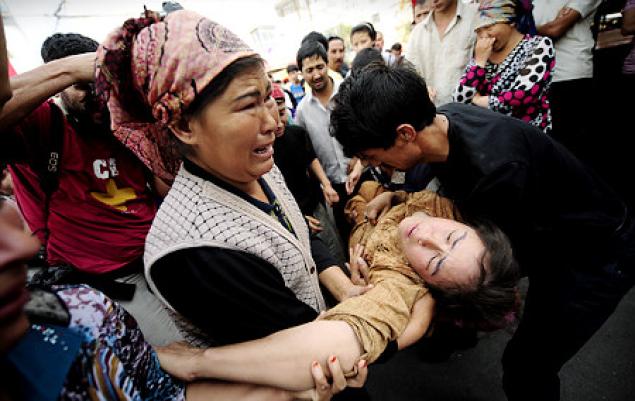
20 February, 08:04
A senior Chinese official has warned the West against meddling in his country’s domestic affairs. Zhu Weiqun said that China has “time on its side” to win over Western opinion to its point of view on the restive regions of Tibet and Xinjiang.
In an article posted on the government-run website Tibet.cn, the Chinese official urged the West to expand ties with Beijing rather than lecture it on human rights. The Voice of Russia spoke about this issue with Francesco Sisci, Commentator for Asia Times with the column Sinograph.
Western human rights groups say that Beijing allegedly backslides on the freedoms of Tibetans and the Muslim Uighur people of Xinjiang.
China, in turn, claims, that some of Uighurs are Islamist extremists who want to create an independent state called East Turkestan.
Meanwhile, tensions in Tibet and Xinjiang have showed no signs of abating in the past.
In Tibetan regions of China, including four provinces outside Tibet, more than 120 Tibetans have set themselves on fire since 2009 in protest over Chinese rule. Most of protesters died.
In Xinjiang, at least 100 people have died in violence since April 2013.
Beijing points the finger at religious extremists and separatists, who it insists were behind the violence.
China has repeatedly said that it respects the rights of people in Tibet and Xinjiang. Beijing also said that it injects money into these regions as part of its efforts to bring development to what it says were backward and remote areas.
Francesco Sisci, Commentator for Asia Times with the column Sinograph, shares his opinion with The Voice of Russia:
Why do you think the West is so interested about China’s human rights record related to Tibet and Xinjiang? In this vein, can you comment on Chinese official Zhu Weiqun’s statement warning the West again meddling in China’s domestic affairs?
First of all, of course, western countries, America, first, and Europe, second, are interested in human rights because this is one of the basic tenants, one of the basic principles of, in a way, western cultures, if you allow me to say that. And I would say meddling Chinese internal affairs in this case, China didn’t use these words, actually I think there was a change in the official rhetoric saying now the west doesn’t understand, but in the future will understand because time is on our side. We are doing the right thing and you will understand what China is doing now.
Western human rights groups say that Beijing allegedly backslides on the freedoms of Tibetans and the Muslim Uighur people of Xinjiang. China, in turn, claims, that some of Uighurs are Islamist extremists who want to create an independent state called East Turkestan. So where is the truth?
Where is the truth I don’t know, we have to look for it. But what I would say is that on the issue of Xinjiang China and Beijing are less isolated than Tibet. I mean few western countries are really supportive of Muslim or pro-independent movements in Xinjiang because this is a restive region, close to Afghanistan, and the situation is very unclear. So, it is very unclear what to do with Xinjiang. However, as you mentioned, things in Tibet are more controversial. Western press and western forces are more supportive and of course Beijing is strongly against any kind of independence, any discussion of independence of Tibet.
Tensions still persist in Tibet and Xinjiang. What do you think should be done to resolve the problem?
The situation is very complex, I am afraid, and definitely there are faults I think from my personal point of view on either side. I mean the management of things from China on Tibet and on Xinjiang is less than ideal. Often officials from Beijing are sent to Xinjiang and Tibet without knowing the local language or the local customs. And this of course makes things difficult with the local population. And on the other hand, the local population in a way fails to understand that in a way it is really difficult to think not only of independence but even of a greater autonomy of these two regions simply because these two regions together claim half of the landmass of China, with about 1% of the population of China. These proportions are a little bit difficult to solve.
